Russian President Vladimir Putin Wants To Talk About Syria
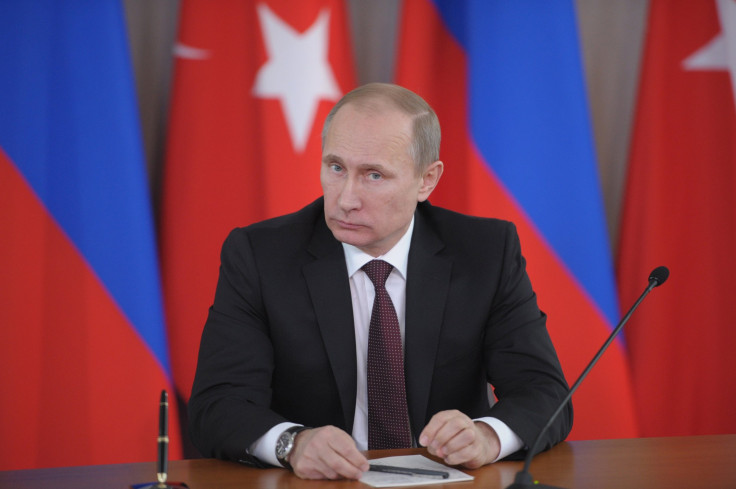
MOSCOW -- In recent weeks, Russia has ramped up its military presence around the port of Tartus in the Mediterranean coastal region of Syria still controlled by the government of President Bashar Assad.
President Vladimir Putin, who regularly warns of the threat from the Islamic State group, was expected to make Syria a central part of his speech to the United Nations on Monday; last week he held talks with a series of Middle Eastern leaders in Moscow.
"Russia already has a tactical vision," said Fyodor Lukyanov, a prominent Russian foreign policy expert and editor of the Russia in Global Affairs journal.
But Western officials and experts are divided over how seriously to take the Russian move. Many suspect it could just be a feint to put Russia at the center of world politics amid its isolation over the Ukraine conflict and to bolster Putin’s domestic support.
Although Russia denies its military deployment is anything unusual, U.S. officials say the Kremlin has moved fighter jets, tanks, air-defense systems and armored personnel carriers to forward operating bases in the coastal stronghold of Assad's Alawite sect.
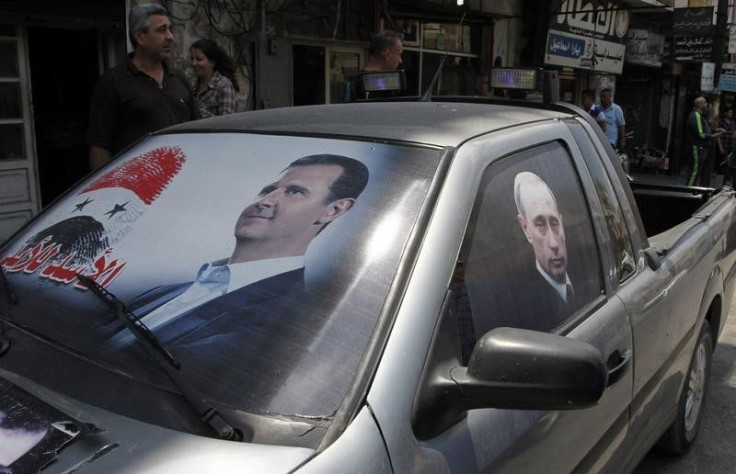
Reports of Russian troops fighting alongside Assad’s forces are hard to verify, but Russian media reported last week on the case of four soldiers who refused to be sent on what they assumed was a covert mission to Syria. “It was suggested to them that they had to go to a certain hot country,” the lawyer defending the men, Ivan Pavlov, wrote on Facebook on Friday.
Military officials in Moscow told Russian news agencies Saturday that Russia had co-founded an information center in Baghdad with Iran, Iraq and Syria devoted to coordinating the battle against the so-called Islamic State.
Putin has refused to rule out any option for the Russian military in Syria, and his spokesman, Dmitry Peskov, has said Russia would consider a request from Assad to deploy Russian ground forces.
The Kremlin, which has backed Assad throughout Syria’s four-year civil war, maintains that no political solution is possible without the Syrian president and the preservation of Syrian statehood.
Russia is especially alarmed by the presence of its own nationals, many from the mainly Muslim North Caucasus regions, among Islamic State fighters. Putin said at a recent security conference in Central Asia that the Islamic State had long since spread its influence beyond the borders of Iraq and Syria. Russian security services estimate that more than 2,000 Russians are currently fighting with the group.
Russian officials seek to explain their new focus on Syria as a response to what they see as U.S. hegemony.
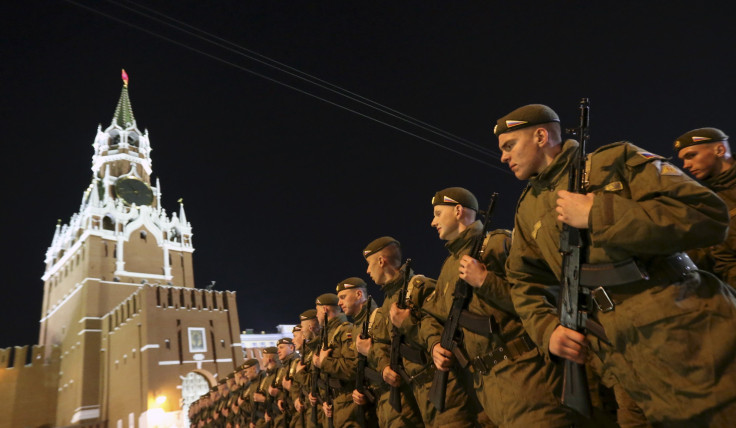
“The dominance of one country in the Middle East leads to tragic events,” said Alexander Krylov, a former Russian diplomat and a Middle East expert, who suggested that a Cold War-style struggle for power between the U.S. and Russia through local proxies was a better guarantor of peace and stability than alleged U.S. dominance.
“Many sensible politicians want the return of serious players to the Middle East,” Krylov said. “Such a balance of power is justified by history.”
Russia’s delegation to the United Nations General Assembly in New York, led by Putin, is expected to put Syria at the center of their agenda.
And Moscow’s moves in recent weeks have been accompanied by a flurry of diplomatic activity. Israeli Prime Minister Benjamin Netanyahu and top Israeli generals visited Moscow on Monday to coordinate their military activities with Russian generals -- and avoid inadvertent clashes in Syrian airspace. Palestinian leader Mahmoud Abbas arrived to see Putin on Tuesday, and Turkish President Recep Tayyip Erdoğan the day after.
Russia also hosted some minor Syrian opposition groups last week and has been steadily increasing diplomatic contacts with other Middle Eastern power brokers.
Putin has repeatedly called for the formation of an international coalition to fight the Islamic State group.
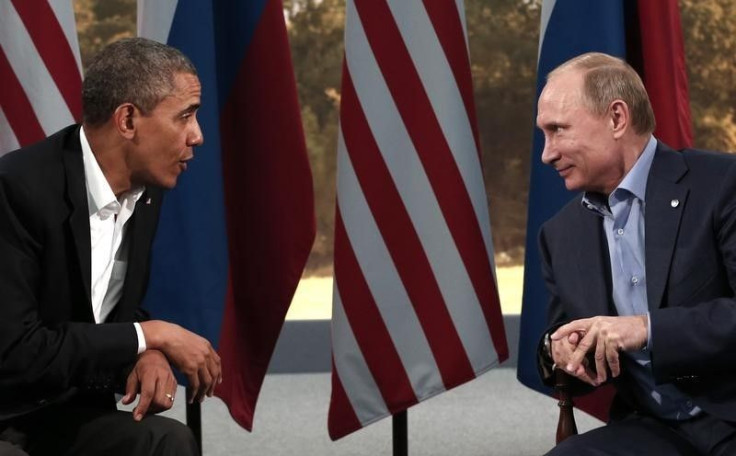
U.S. officials have said Russia requested a meeting between Putin and President Barack Obama that is due to take place at the U.N. Monday. And Putin even gave an interview to CBS’ Charlie Rose in which he dramatically dialed down his anti-American rhetoric of recent years, praising the “creativity” of Americans.
Asked in the interview, which was broadcast Sunday evening, what he admired most about Americans, Putin launched into series of compliments. “Creativity when it comes to your tackling problems,” he said. “Their openness — openness and open-mindedness — because it allows them to unleash the inner potential of their people. And thanks to that, America has attained such amazing results in developing their country.”
Many are wary of Putin’s overtures, fearing that he is simply using the Syrian issue to grandstand on the world stage.
“We can see maybe some kind of a trick from Putin. … The Russian leader really knows that his suggestion to cooperate in a deal of supporting Assad in order to fight world terrorism is politically unacceptable for the USA,” Andrei Kolesnikov, an expert on Russian politics at the Carnegie Moscow Center, told reporters on a conference call Thursday.
“This is very important for Putin in the circumstances of upcoming parliamentary and presidential elections,” Kolesnikov added.
Russia holds parliamentary elections next year and the country is currently in the throes of an economic recession because of low oil prices and Western sanctions.
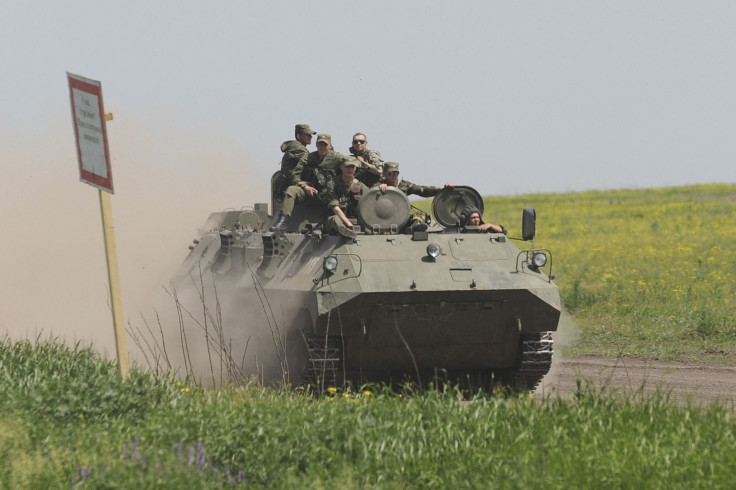
A diplomatic tussle over Syria offers Putin a chance for success, and analysts suggest the Kremlin is promoting the issue over that of Ukraine, where Russian-backed separatists are locked in a stalemate with troops loyal to Kiev that looks a long way from any resolution and has dominated headlines in Russia for more than a year.
News items about Ukraine on Kremlin-loyal media have become rarer in recent weeks, supplanted by reports on the situation in Syria and Europe’s refugee crisis. Russian state-owned television channels have reassigned reporters from eastern Ukraine to Syria.
Many analysts are doubtful that the Kremlin would risk getting sucked into a ground war in Syria. Few in Russia have forgotten the huge losses the Soviet Union experienced in Afghanistan during a decade of bloody combat.
“Russia is not ready to fight 1,000 miles from its borders,” Kolesnikov said. "It's more PR story than real military operation."
© Copyright IBTimes 2024. All rights reserved.












